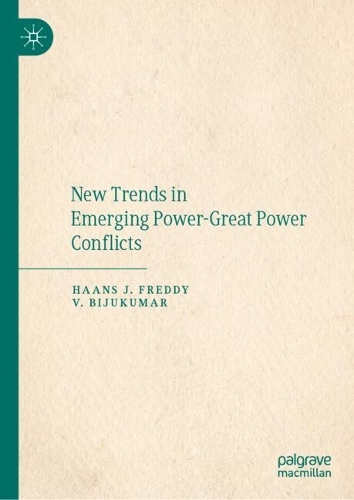
・ISBN 978-3-031-58166-3 hard EUR 119.99
¥29,696.- (税込)
| 著者・編者 | Freddy, Haans J. / Bijukumar, V., |
|---|---|
| 出版社 | (Palgrave Macmillan, UK) |
| 出版年 | 2024 |
| ページ数 | 141 pp. |
| ニュース番号 | <728-897> |
The rise and fall of states in the international system has been an interesting problem that has received attention amongst scholars, policy makers, journalists, politicians and leaders of states. Interestingly there have been numerous attempts that have sought to define, explain and interpret the consequences of these developments that occur in the international system (Chan, 2008:1). Efforts have been made to define 'Great Powers', 'Middle Powers', 'Emerging Powers', 'Small Powers', Super Powers', 'Hegemons' etc, of which the idea of 'Great Power' and 'Emerging Power', receives primary attention in this research. The dramatic rise of China and India in particular, in terms of their economy and military capabilities, has brought about a paradigm shift in terms of thinking of world politics that is coupled with the decline of the US' hegemonic status. Randall Schweller points out that there have been arguments that support the fact of the increasing potential for security competition and war between the US and China and on the other hand he also directs the reader to the optimist's argument that the transition of power would be smooth and evolutionary where there will be efforts towards accommodating these changes that are occurring in the international system. He also points out that there will be efforts by great powers to accept these changes through restraint, reciprocity, cooperation and establish a mutually acceptable order that would benefit all (Schweller, 2011: 285). These complexities make it both interesting as well as a serious concern in terms of peace and security in the world.